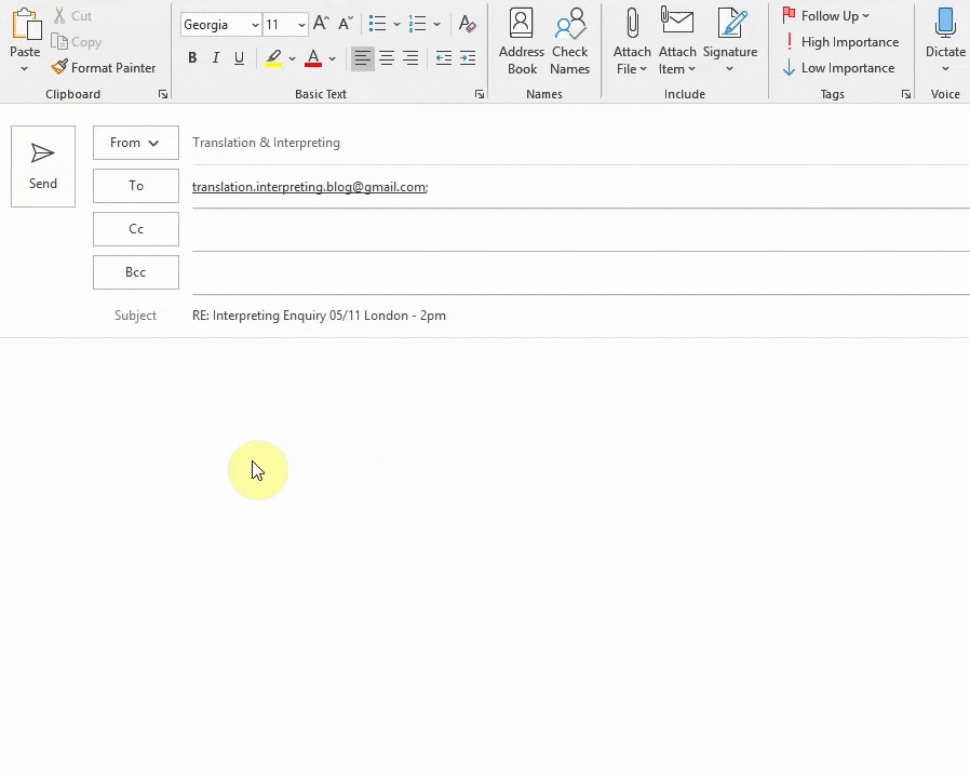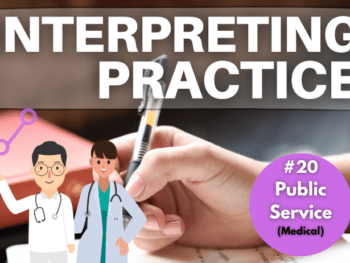A translation project manager job is one of the most straightforward ways to enter the translation industry. Here are some of the things you can do to become a better PM.
When I first entered the translation world, instead of immediately going freelance, I decided to get a full-time job as a project manager (PM) at a London-based translation agency.
This is a path a number newcomers to our industry choose to follow, as it gives you a ton of inside knowledge and many other things for which universities aren’t preparing their students.
Looking back, I’m glad I have taken this path. It made me understand what the best practices are and how things actually work across the board. Indeed, agencies offer the dual experience of being both a client and a language services provider at the same time.
Still, there’s a fact that can’t be ignore: translation project management is tough. It’s a highly stressful, fast-paced job where things happen fast – and often go wrong. For that reason, developing a set of work strategies and coping mechanisms is absolutely essential if you want to survive succeed in this job.

If you’ve recently started a job as a translation project manager, or if you’re considering applying for one, there are some things you can do to improve your work performance. Most of them are lessons that I learned the hard way, so I’m hoping this post will make things a bit easier for you.
Note: If you want to know more about what a PM actually does and how you can get a PM job, check my other posts on the subject:
Set a Personal Goal
One of the first things you should do even before you take a project manager job is ask yourself: ‘what are my personal goals?‘
When people decide to study translation or interpreting at university, they are not exactly thinking about becoming PMs – at least the majority isn’t.
I even met second-year students who had never heard of translation project management as a job. Most of us enter this field of study with the objective of becoming a translator or interpreter.
If PMing is what you wanted to do from the beginning, then you’re on the right track: this first tip does not apply to you.
If, on the other hand, getting a PM job is more of a ‘plan B’ – just like with most translation graduates – reflecting on your long-term professional goals may become extremely important.

Managing projects for an agency is very different from doing actual translation or interpretation. It has absolutely nothing to do with what you’d normally learn at uni.
As a result, many new PMs end up having a hard time due to how unprepared they are for the job. Most wanted to become translators and/or interpreters in the first place, so they see project management either as:
A) the only thing they managed to find (i.e., nothing but a much-needed job to pay the bills)
or
B) a stepping stone for greater things (e.g., freelancing or other types of office-based jobs)
Even if PMing isn’t what you intend to do for the rest of your life, it’s always best to adopt mindset B). That’s how you make the most of the experience and use all the valuable knowledge that you’ll gain as a PM for other things.
Having a goal in mind will help you develop a positive attitude towards your PM daily tasks. So ask yourself questions such as:
- For how many years am I prepared to work as a PM?
- What are the requirements for me to even start thinking about a transition to freelancing?
- Are there any particular skills I need to learn or improve before making a move? (e.g. a thorough knowledge of CAT tools)
- Have I got a reasonable amount of contacts within the industry already?
- How much money do I need to have saved before I decide it’s time to go freelance?
- If I enjoy the experience, will I consider a career as a PM (or any other role above that within a translation agency)?
Even if you can’t seem to find the exact answer to any of these questions yet, just thinking about them is already better than nothing.
There’s no right or wrong answer. Your original plan may even change at a later point in the face of circumstances, but having some sort of plan or idea will help you stay the course.
Optimise Your Productivity
Good PMs are productive individuals – there’s no way around it.
Even if you don’t consider yourself to be the most productive person, don’t panic: there are ways to get better. Like so many thinks, productivity is, to an extend, a skill that can be learned and perfected.

If you want to know how to improve your levels of productivity, I strongly recommend you to check my post on the subject (link below):
Continue Reading: 21 Hacks For Productivity Improvement
For the purpose of this post, I’ll mention some of the productivity hacks from the above list that are particularly important for PMs:
Use a Text Expander Software
The typical day of a project manager is likely to involve email handling in high volumes. This may turn out to take a large chunk of your day, as constant email exchange becomes very time-consuming over the course of an 8-hour shift.
Using a text expander software will save you a lot of time over the long run, as it makes email writing less repetitive and more straightforward.
Essentially, it allows you to save email templates in the software’s memory and ‘trigger’ them in one second whenever you need them.

If your agency doesn’t use a text expander already, consider proposing one to your manager or team leader: they tend to be really affordable and will definitely increase the levels of productivity across the entire organisation.
I’ve already reviewed some of the best text expanders on the market, so make sure to read the post below:
Continue Reading: 4 Best Text Expanders
Keep Your Inbox Organised
A project manager with an unorganised Email Inbox is a doomed project manager. Developing a solid email organisation system should be your top priority the moment you start your job as a PM.
Most agencies already use some sort of email manager software (such as Outlook or similar), so that’s a good start!
You can easily store different types of emails in dedicated folders to keep your inbox neat and easy to read.
And do make sure you make a clear distinction between ‘emails that request immediate action‘ and ‘emails that will request action at a later point.’
In any case, avoid a messy inbox at all cost: you will lose track of your emails, miss important information and make your day at work an absolute hell.
Develop a Routine
Having a well-defined daily work routine will prevent you from being ‘all over the place’, as it often happens with new project managers.
For instance:
- Use the first 30 minutes of your day to read your entire inbox.
- Dedicate the next 10-20 minutes to checking the current stage of all your ongoing projects.
- Have a priority list or action plan prepared for the day by no later than 10am.
- Try to have your lunch break more or less at the same time every day.
- Consider allocating a specific timeslot for admin tasks (e.g. in the afternoon or before end of business)
- etc…
Repetition and consistency are two of your best allies when you have a stressful, fast-paced job. A routine will help you cope with your daily workload and become more productive.
Take Breaks
There’s only so much the human brain can take before it starts ‘malfunctioning’.
Many PMs (myself included, at times) respond to busy periods with non-stop work for hours on end, which eventually makes us more prone to making mistakes.
Taking a short break every hour or so may give your brain that much needed relief that will help you keep pace with your duties in a more efficient way.

This, unfortunately, is often overlooked in our industry, as many office managers have an absurd ‘do not stop working even for a second’ type of mindset that discourages PMs from moving away from their desks.
This is wrong, counterproductive and has to stop. Regular breaks are important and help PMs become better at their job.
Even a 5-minute break to grab a coffee or go to the toilet can have a huge impact over the course of an 8-hour shift.
Communicate With Your Colleagues
New PMs tend to be shy and not very keen to ask questions – even when they most definitely should.
Experienced PMs may end up facing a bad time too if their communication skills aren’t as good as they should be.
The truth is, communication is everything when you’re a project manager. A poor level of communication is one of the main sources of misunderstandings and gross mistakes that make everyone’s job more frustrating, stressful and less enjoyable.

Every team member should know who’s doing what in order to avoid time-wasting and counterproductive incidents.
I’ve seen situations where 2 colleagues decided to take care of the same project without letting anyone know – so there were 2 people doing the exact same thing for the same client. That’s an embarrassing waste of time and resources that could have been avoided had they just communicated with one another.
Leave Your Work At Your Desk (If You Can…)
The best translation project managers tend to be those who are capable of ‘disconnecting’ their brains from anything related to work when they’re out of office.
Too many people carry their work duties and problems into their private lives – and that happens not only in the translation industry.

Project management can be an intense activity, mentally speaking. If you keep thinking about work (or even worst: doing work) when you should be resting, your exhausted mind will take its toll eventually.
As a result, you will make more mistakes, feel more frustrated, and struggle to enjoy your job.
This is a challenging one, and I myself have been guilty of this on a number of occasions. It took me a long time to learn to accept that once your day of work is over, it should really be over.
When you start your day of PMing with a rested, sharp state of mind, you most definitely will perform better. Do whatever you can to safeguard that.
If you’ve found this post helpful or think it could be useful to a friend who perhaps is – or is planning to become – a translator or interpreter, please kindly consider buying me a coffee by using the button below:
I put all my heart and soul into the content I produce in order to help my fellow linguists set foot in the industry. Most of what I do is available to everyone for free.
Donating is 100% optional, but greatly appreciated. A short espresso will do! ☕






 Interpreting Training Exercise | HR / Public Service
Interpreting Training Exercise | HR / Public Service



Hello there, Translation and Interpreting team! I just finished reading your article on tips for translation project managers, and I must say, it was an absolute gem! As someone who has recently taken on the role of a translation project manager, I found your insights and advice extremely helpful. Your article provided valuable guidance on how to effectively navigate the challenges of this role and ensure successful outcomes for translation projects.
First and foremost, I greatly appreciated your emphasis on the importance of effective communication. The language barrier can be a significant obstacle in translation projects, but your article highlighted the significance of clear and open communication channels. From establishing strong relationships with clients and translators to maintaining regular and transparent communication throughout the project, your tips emphasized the crucial role that effective communication plays in achieving project success. Your advice on leveraging technology to facilitate communication and streamline workflow was particularly insightful and something I’ll definitely implement in my own projects.
Additionally, I found your tips on project planning and organization extremely valuable. As a translation project manager, juggling multiple projects with tight deadlines can be quite challenging. Your article emphasized the need for meticulous planning, setting realistic expectations, and creating a detailed project schedule. I especially appreciated your suggestion of breaking down larger projects into smaller, manageable tasks, as it allows for better resource allocation and helps in meeting deadlines effectively. Your emphasis on maintaining project documentation and creating style guides will undoubtedly contribute to improved consistency and quality in translation projects.
Thank you so much for sharing these invaluable tips for translation project managers. Your expertise and insights will undoubtedly assist me in successfully managing translation projects in the future. Keep up the fantastic work, and I eagerly look forward to reading more informative articles from your team!